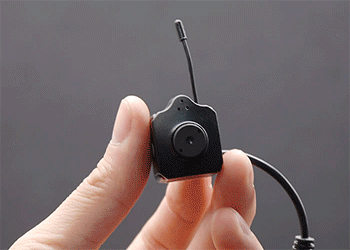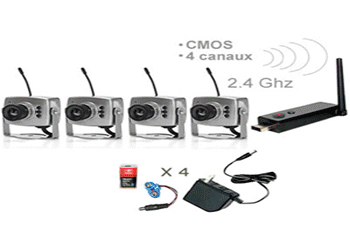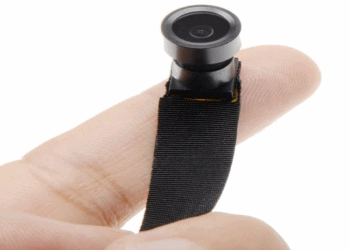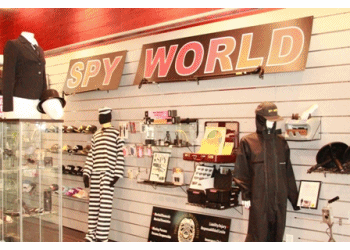RF Wireless Camera Miami Beach Coral Gables

RF Wireless Camera Miami Beach Coral Gables
Radio Frequency monitoring is a technology that uses an offender-worn transmitter and a receiver that is typically placed in the offender’s home. The transmitter emits a unique RF signal that is detected by the receiver. Agencies will typically determine the range setting for the receiver based on the size and layout of the offender’s home. When the receiver detects that the transmitter is no longer in the pre-set range, it transmits the data to the monitoring center via cellular or land line. If the “leave” is approved, and per the agency provided a schedule, the event is electronically noted in the daily activity summary. If the leave is not authorized, the call center follows agency directed notification procedures. Both the transmitter and receiver have technology to detect tamper attempts.
RF monitoring is an effective tool for use in a curfew monitoring applications. The technology is designed to determine an individual’s presence or absence relative to the receiver unit. Many agencies use RF technology for “house arrest” programs.
RF monitoring in Miami Beach Coral Gables cannot determine where an individual is after they leave the range of the receiver. The system will not “track” an individual once they leave the range of the receiver. The range can be impacted by a number of factors including but not limited to: wall thickness and construction materials used, the size of residence, the location of large metal items (appliances), residence layout (e.g. ranch home versus row house).
Wireless security cameras are closed-circuit television (CCTV) cameras that transmit a video and audio signal to a wireless receiver through a radio band. Many wireless security cameras require at least one cable or wire for power; “wireless” refers to the transmission of video/audio. However, some wireless security cameras are battery-powered, making the cameras truly wireless from top to bottom.
Wireless security cameras in Miami Beach Coral Gables function best when there is a clear line of sight between the camera(s) and the receiver. Outdoors, and with a clear line of sight, digital rf wireless cameras typically have a range between 250 and 450 feet. Indoors, the range can be limited to 100 to 150 feet. Cubical walls, drywall, glass, and windows generally do not degrade wireless signal strength. Brick, concrete floors, and walls degrade signal strength. Trees that are in the line of sight of the rf wireless camera and receiver may impact signal strength.
The signal range also depends on whether there are competing signals using the same frequency as the camera. For example, signals from cordless phones or routers may affect signal strength. When this happens, the camera image may freeze, or appear “choppy”. A typical solution involves locking the channel that wireless router operates on.

RF Wireless Camera Miami Beach Coral Gables
Since their first introduction about ten years ago, digital rf wireless camera systems have revolutionized many areas of television production. While analog wireless links still provide solid point-to-point connections, digital rf wireless camera systems offer a multitude of possibilities ranging from simple shoulder camera applications to complex systems including multiplexers, relay units and cellular receive networks with a huge number of antennas.
A big advantage of digital rf wireless camera systems is that they do not require a line-of-sight connection between the transmitter and the receiver. Signals reflected from concrete walls or windows can be used to improve the signal quality. Scalable error correction algorithms and modulation settings ensure maximum picture quality and ruggedness even under challenging conditions.
Latest rf wireless camera systems in Miami Beach Coral Gables are able to handle analog and digital standard and high definition video signals as well as analog, digital or embedded audio. Additional tracking equipment allows operators to control many cameras functions wirelessly, so rf wireless cameras can easily be used alongside regular wired cameras.
The average coverage for a standard rf wireless camera system is about 1 km, although ranges vary depending on topography and surrounding buildings. Using high power amplifiers, directional antennas, helicopter relays or multi-receive site networks the covered area can be expanded to over 100 km.
This wireless video camera enables you to send live video from one location to another without expensive and messy wiring. The rf wireless camera works on its own transmission system and is therefore particularly useful in those remote locations where there is no internet coverage or out of WiFi range. No software installation required. NTSC and PAL options are available.
RF wireless cameras are proving very popular among modern security consumers due to their low installation costs (there is no need to run expensive video extension cables) and flexible mounting options; rf wireless cameras can be mounted/installed in locations previously unavailable to standard wired cameras. In addition to the ease of use and convenience of access, wireless security camera allows users to leverage the broadband wireless internet to provide seamless video streaming over internet.
There are several means by which live video images can be transmitted without the use of cables or wires: lasers, radar signals and radio (all of which are “microwaves,” differing only in frequency on the spectrum). The most commonly used microwave is radio-frequency RF (“radio” for short). RF broadcasts intended to travel long distances usually make use of ground-based antennas or satellites that relay the signal from the transmitter to the receiver. RF Broadcasts intended to travel short distances are usually beamed “point-to-point,” that is, directly from the transmitter to the receiver. (Unfortunately for the people who visit and work in the area, an example of a high-powered point-to-point system can be found right in the heart the New York City’s Times Square.)
In the US, many law enforcement agencies use radio signals (RF) to transmit, relay and receive live video images. These agencies include the California Highway Patrol, the US Border Patrol and the the New York Police Department (NYPD). Their use of rf wireless cameras can either be covert or overt.
As of 2010, wireless spy cameras operate within a range of RF frequencies: 434mhz, 900mhz, 1.2ghz, 2.4ghz, and 5.8ghz. Though other wireless surveillance methods are quickly coming to market, like the remote workstation spying conducted by a Pennsylvania School District, the wireless spy camera remains the backbone of most covert surveillance installations.
Wireless spy cameras constructed in the future will likely operate at even higher radio frequencies RF, enhancing range and video resolution, due to continuing improvements made to wireless technologies.
Wireless spy cameras in RF 900mhz-1.2ghz range are still on the market, but as of 2010 receive little use. There are 2.4ghz or 5.8ghz RF cameras that provide good value and are popular choices for wireless surveillance setups.
Cameras that use RF of 2.4ghz are widely used in many covert surveillance applications. 5.8ghz RF cameras are becoming more prevalent due to growing consumer awareness of the greater range and reduced signal corruption provided by the 5.8ghz RF band.
Analog wireless in Miami Beach Coral Gables
Analog wireless is the transmission of audio and video signals using radio frequencies. Typically, analog wireless has a transmission range of around 300 feet (91 meters) in open space; walls, doors, and furniture will reduce this range.
Analog wireless is found in three frequencies: 900 MHz, 2.4 GHz, and 5.8 GHz. Currently, the majority of wireless security cameras operate on the 2.4 GHz frequency. Most household routers, cordless phones, video game controllers, and microwaves operate on the 2.4 GHz frequency and may cause interference with your wireless security camera. 900 MHz is known as Wi-Fi Friendly because it will not interfere with the Internet signal of your wireless network.
Advantages include:
Cost-effective: the cost of individual cameras is low.
Multiple receivers per camera: the signal from one camera can be picked up by any receiver; you can have multiple receivers in various locations to create your wireless surveillance network
Disadvantages:
RF wireless camera range varies greatly in real-world applications. Most range information published by manufacturers assumes a clear line-of-sight (LOS). Real-world camera installations, though, generally occur in environments that include walls, doors, overhangs and many other obstructions that impact wireless video signal reception.
Radio frequency RF interference also becomes an issue. Signal corruption or “noise” increases as more devices “share” the same band (cordless phones, microwaves, garage door openers). The 2.4ghz RF band is particularly sensitive to signal corruption.
Susceptible to interference from other household devices, such as microwaves, cordless phones, video game controllers, and routers.
No signal strength indicator: there is no visual alert (like the bars on a cellular phone) indicating the strength of your signal.
Susceptible to interception: because analog wireless uses a consistent frequency, it is possible for the signals to be picked up by other receivers.
One-way communication only: it is not possible for the receiver to send signals back to the camera.
Digital RF wireless cameras in Miami Beach Coral Gables

RF Wireless Camera Miami Beach Coral Gables.
Digital wireless is the transmission of audio and video analog signals encoded as digital packets over high-bandwidth radio frequencies.
Advantages include:
Wide transmission range, usually close to 450 feet (open space, clear line of sight between camera and receiver)
High-quality video and audio
Two-way communication between the camera and the receiver
Digital signal means you can transmit commands and functions, such as turning lights on and off.
You can connect multiple receivers to one recording device, such as security DVR.
How to Choose a Suitable Security Camera
Understand the variety of security camera types available:
Infrared (IR) security cameras.
Dome cameras.
Pro box cameras.
Pan tilt zoom cameras.
Hidden cameras.
Consider the advantages of using an infrared (IR) security camera. This is a popular type of camera for both business and home.
Infrared Cameras produce high-resolution color video during the day. In low lux (light) or no light conditions, they are the preferred camera type.
They are able to “illuminate the area” by automatically switching from color to black and white. The infrared illuminators turn on and allow you to see much cleared that the human eye in both low light and no light. Whether being used indoor or outdoor, they provide a huge advantage in low light or no light situations.
They can be weatherproofed and can withstand hot and cold temperatures without any additional camera housing needed. Indoor infrared cameras offer a clear video image in the light and in the dark.
Consider the advantages of a dome camera in Miami Beach Coral Gables.
The different styles of domes include infrared domes, indoor domes, outdoor domes, vandal proof domes, and pan tilt zoom controllable domes. Classic “smoked” dome cameras offer an additional degree of surveillance as friends, customers, employees, and burglars have a difficult time seeing where the lens is actually pointing. The smoked cover does not affect picture quality.
Expect a clear color high-resolution picture with the dome camera. Most pan tilt zoom cameras are in a dome type housing as well. Professional “box type” cameras are used both indoor and outdoor with a camera housing.
Consider the advantages of a pro box camera. These cameras are known for their high video quality. Pro box cameras are often found in banks, supermarkets, convenience stores, etc. Lenses can be changed on the pro box camera based on the viewing angle and zoom that is required. Some Pro Box Cameras are called day / night cameras as they can switch from color during the day to black and white in the evening or in low lux (light conditions). The lower the lux, the better the camera can see in complete darkness.
Infrared cameras are considered night vision cameras and have a 0 Lux rating. You might prefer a box camera if you do not need or want infrared and are more concerned with quality daytime video.
Consider the benefits of a pan tilt zoom camera. These are cameras that can be controlled through the DVR, remote viewing software, and/or a joystick. They can go up, down, left, and right. They also have zoom capability.
For example, you can capture a license plate or zoom in on a face from far away. You can also program them to do preset tours where you can have them monitor certain areas while you are away.
In Miami Beach Coral Gables Airports, casinos, large department stores such as Target or Walmart are examples of places that use PTZ (Pan Tilt Zoom Cameras).
Pan tilt zoom cameras are expensive, starting at $500 and up. The question is, “do you need a pan tilt zoom camera”, or can you use fixed cameras to get the desired solution?
Pan tilt zoom controllable cameras require one additional cable for operation. A CAT5 cable is needed in addition to the power/video RG-59 Siamese coax cable in order to control it live and over the internet. Simply run a CAT5 cable next to the RG-59 to control your pan tilt zoom camera.
Consider the benefits of hidden cameras in Miami Beach Coral Gables.
These offer perhaps the highest degree of surveillance. If you do not want someone to know that there is a camera, use a hidden camera. Fake smoke detectors, motion detectors, clocks, sprinklers, EXIT signs are examples of the type of hidden cameras that are used.
The main disadvantage is that hidden cameras do not have infrared capabilities which limit their performance in low light.
In addition, many hidden cameras are not weatherproof, so they take are not as useful as an infrared bullet and dome cameras when being used outdoors. Pharmacies, hallways of hotels, assisted living facilities, and homes are examples of some of the applications in which hidden cameras are used.
Decide whether you want wired or RF wireless cameras.
Wired cameras offer a larger selection of cameras and more importantly, much better video quality than rf wireless cameras. RF wireless cameras can somewhat be misleading as they need to be powered at the camera location. In addition, they require a line of sight with no obstacles, which often poses an issue.
Reliability and video quality are the main reasons that you should use a wired camera. Wired cameras are powered back at the DVR location and only a single cable (RG-59 Siamese coax power/video in one) needs to be run from the DVR to each individual camera. You can run cameras up to 800 feet (243.8 m) away with this particular cable. If going over 800 feet (243.8 m) you will need to use CAT5 cable with video baluns and/or amplifier.
Expect a much longer lifespan and much higher quality with wired cameras.
Obstacles are not an issue with wired cameras. With that in mind, occasionally you may have a location of two that absolutely need it. In that case, you can plug the transmitter into the back of the DVR.
Detection of RF wireless cameras in Miami Beach Coral Gables.

RF Wireless Camera Miami Beach Coral Gables.
All electronic devices give off some level of radio waves (RF). Wireless RF “Bug-sweeping,” or Technical Surveillance Countermeasures (TSCM), is the professional activity of using various scanning devices to detect existing Radio Frequency (RF) transmissions.
In a situation where a wireless RF hidden camera installation has suspected a technician might, for example, scan for RF activity on the 1.2ghz and 2.4ghz bands. While this sounds simple, in reality, TSCM is a highly technical field of surveillance countermeasures.
Hidden cameras, by comparison, may be entirely self-contained. Hidden cameras include a power source and storage medium (typically a micro-SD card) within the main device, circumventing many of the limitations of wireless setups. Non-wireless “Teddy-Bear” and “nanny cams” are examples of hidden cameras.
A hidden camera also gives off lower RF activity, as it is not actively broadcasting. This makes non-wireless hidden cameras much less susceptible to “bug sweeps.”
SpyWorld has several units of RF wireless cameras that have advanced features. The main idea is having the proper equipment to not only transmit RF video and audio signal but to take advantage of modern technology capacities of RF cameras.
In SpyWorld we specialize in the sale of electronic RF wireless cameras and much more, Visit us in Coral Gables, Miami Beach – Florida. Coral Gables is a city in Miami-Dade County, Florida, United States, located southwest of Downtown Miami.
[email protected] / [email protected]
Spy Store Miami & Spy Shop Miami
Miami Beach • Miami Gardens • Aventura • Coral Gables • Doral • Hialeah • Hialeah Gardens • Homestead • Kendall • Key Biscayne • Miami • Miami Lakes • North Miami • North Miami Beach • Opa-Locka • Palmetto Bay • Pinecrest • Pinecrest / Monroe Couty • South Miami • Miami Beach




